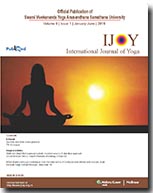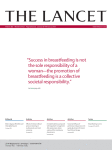 Remember when we recently found PLOS ONE had published two papers with “substantial overlap” from two different groups, that were edited around the same time? Well, we have discovered another similarly perplexing case of plagiarism in two studies published only months apart. But in this instance, we have a possible explanation for how two groups of authors from different institutions could report a similar experiment and data, and even use some of the same text.
Remember when we recently found PLOS ONE had published two papers with “substantial overlap” from two different groups, that were edited around the same time? Well, we have discovered another similarly perplexing case of plagiarism in two studies published only months apart. But in this instance, we have a possible explanation for how two groups of authors from different institutions could report a similar experiment and data, and even use some of the same text.
It also concerns a paper focusing on cancer biology — in this case, it’s a 2014 paper retracted by Clinical and Investigative Medicine after editors learned that it contained many similarities to a study published only a handful of months before in Tumour Biology.
According to an email from an author on the retracted paper to the editor, Continue reading Another case of plagiarism in papers published only months apart








